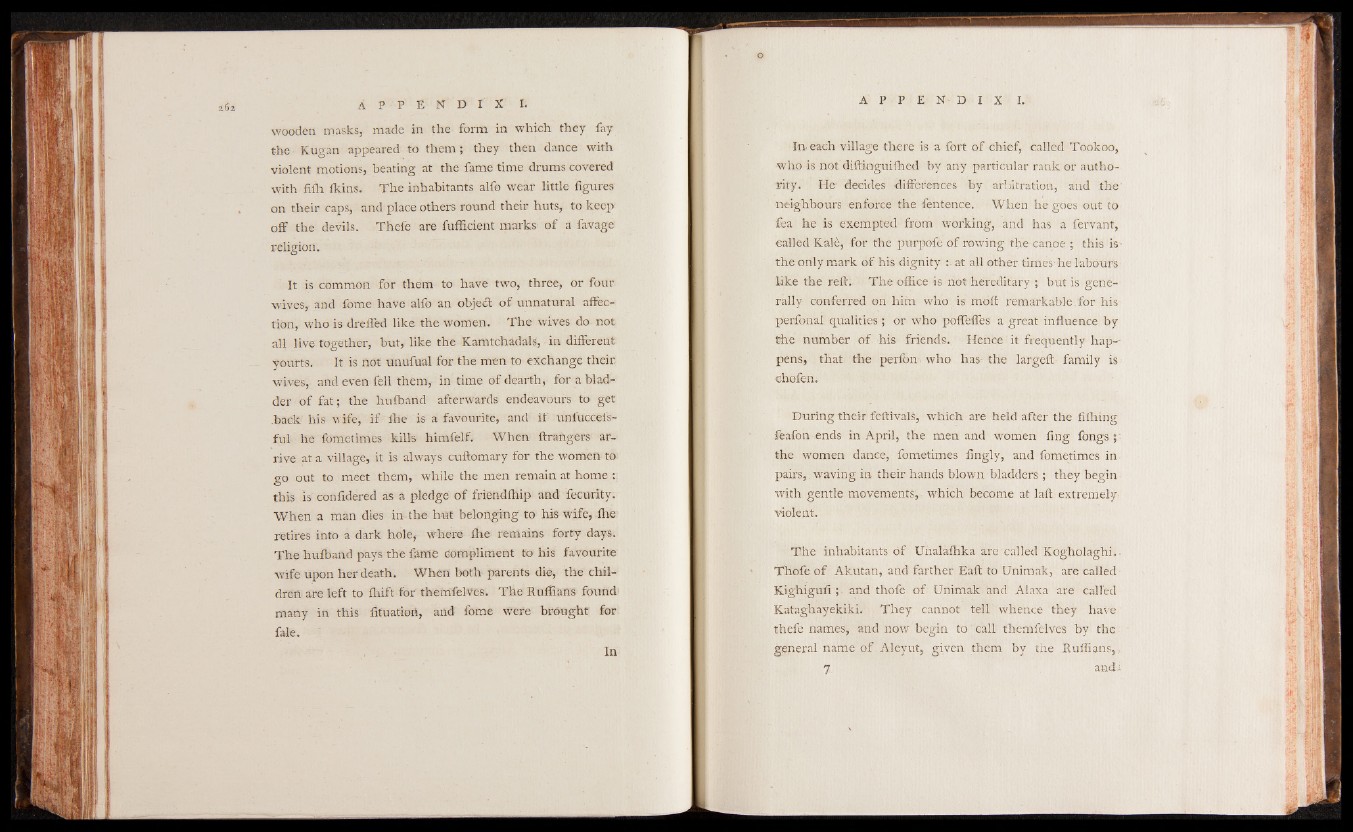
wooden masks, made in the form in which they fay
the Kugan appeared to them; they then dance with
violent motions, beating at the fame time drums covered
with f i ll fkins. The inhabitants alfo wear little figures
on their caps, and place others round their huts, to keep
off the devils. Thefe are fufficient marks of a favage
religion.
It is common for them to have two, three, or four
wives, and fome have alfo an objedt of unnatural affection,
who is drefled like the women. The wives do not
all live together, but, like the Kamtchadals, in different
yourts. It is not unufual for the men to exchange their,
wives, and even fell them, in time of dearth, for a bladder
of fat; the hufband afterwards endeavours to get
back his wife, if the is a favourite, and if unfuccefs-
fu-1 he fometimes kills himfelf. When Arrangers arrive
at a village, it is always cuftomary for the women to
go out to meet them, while the men remain at home :
this is confidered as a pledge of friendffiip and fecurity.
When a man dies in the hut belonging to his wife, fhe
retires into a dark hole, where fhe remains forty days.
The hufband pays the fame Compliment to his favourite
wife upon her death. When both parents die, the children
are left to fhift for themfelves. The Ruffians found
many in this fituatiort, and fome were brought for
fale.
In each village there is a fort of chief, called Tookoo,
who is not diftinguifhe-d by any particular rank or authority.
He1 decides differences by arbitration, and the'
neighbours enforce the fentence. When he goes out to
fea he is exempted from working, and has a fervant,
called Kale, for fhe purpofe of rowing the canoe ; this is-
the only mark of his dignity :■ at all other times-he labours-
like the reft. The office is not hereditary ; but is gene-
rally conferred on him who is mo ft remarkable, for his
perfonal qualities ; or who poffeffes a great influence by
the number o f his friends. Hence it frequently hap--
pens, that the perfon who has- the largeft family is
chofen.
During their feftivals, which are held after the fifliing
feafon ends in April, the men and women fing fangs
the women dance, fometimes fingly, and fometimes in-
pairs,. waving in their hands blown bladders ; they begin
with gentle movements;- which become at la-ft extremely-
violent.
The inhabitants of Unalafhka are called Kogholaghi.-
Thofe of Akutan, and farther Eaft to Unimak, are called
Kighigufi ; and thofe of Unimak and Alaxa are called
Kataghayekiki. They cannot tell whence they have
thefe names, and now begin to call themfelves by the
general name of Aleyut, given them by the Ruffians,,
7 anda